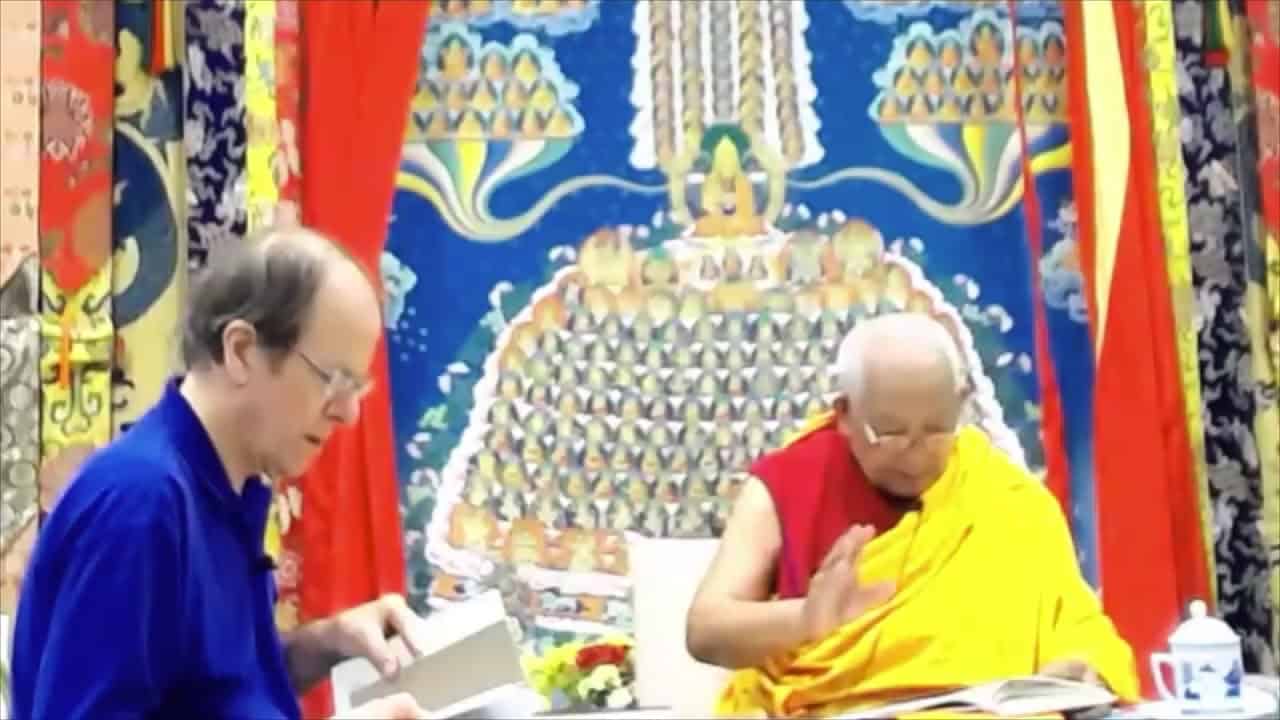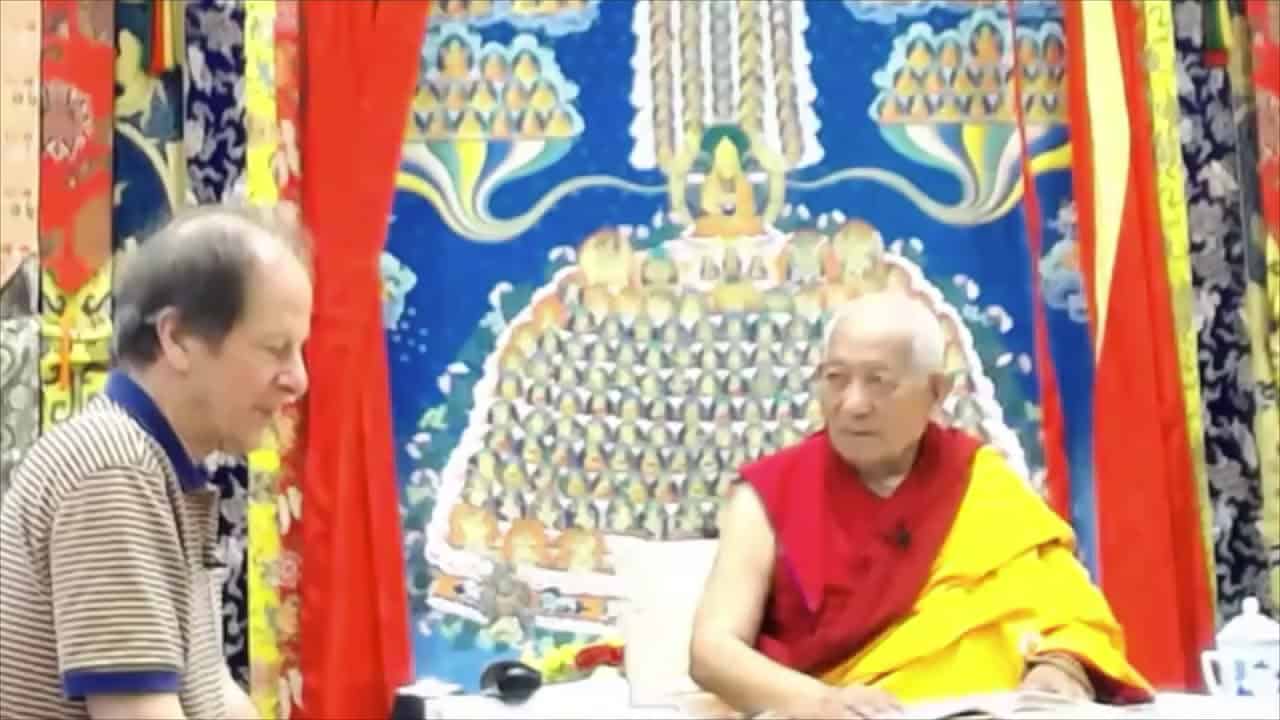Chapter 14: Verses 328-337
Part of a series of teachings on Aryadeva's 400 Stanzas on the Middle Way given on an annual basis at Sravasti Abbey by Geshe Yeshe Thabkhe beginning in 2013.
- Refuting that an inherently existent entity exists because it acts as a basis for attributes
- Inconsistency with the assertion that one attribute cannot rely on another attribute
- Extensively refuting the composite as an inherently existent single unit
- Refutation by examining for oneness or difference
- Refuting the composite as an inherently existent single unit through the coming together of its constituents
- Consequence that everything is a pot if the pot has inherent existence
- Consequence that the eight substantial particles of the pot are one
- Refuting inherently existent production of the pot from its causes
Geshe Yeshe Thabkhe
Geshe Yeshe Thabkhe was born in 1930 in Lhokha, Central Tibet and became a monk at the age of 13. After completing his studies at Drepung Loseling Monastery in 1969, he was awarded Geshe Lharampa, the highest degree in the Geluk School of Tibetan Buddhism. He is an emeritus professor at the Central Institute of Higher Tibetan Studies and an eminent scholar of both Madhyamaka and Indian Buddhist studies. His works include Hindi translations of The Essence of Good Explanation of Definitive and Interpretable Meanings by Lama Tsongkhapa and Kamalasila's commentary on the Rice Seedling Sutra. His own commentary, The Rice Seedling Sutra: Buddha’s Teachings on Dependent Arising, was translated into English by Joshua and Diana Cutler and published by Wisdom Publications. Geshela has facilitated many research works, such as a complete translation of Tsongkhapa’s The Great Treatise on the Stages of the Path to Enlightenment, a major project undertaken by the Tibetan Buddhist Learning Center in New Jersey where he teaches regularly.


